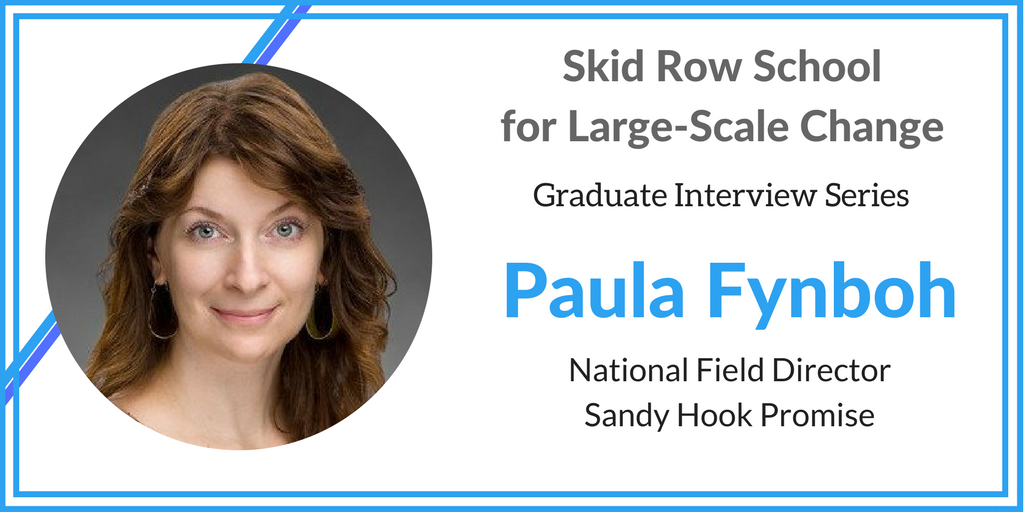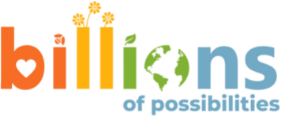
Meet Paula Fynboh. Paula leads the national outreach and program strategy for Sandy Hook Promise with the goal of bringing Sandy Hook Promise’s no-cost, easy to implement prevention actions and resources to schools and youth serving organizations across the country.
What is the core/heart of Sandy Hook Promise’s intervention?
We believe that gun violence is preventable when we know what signs to look out for. When people know what to look for, they have the ability to intervene and take action before violence takes place. At Sandy Hook Promise, we provide training and programs that help protect people from gun violence.
We believe that gun violence is preventable when we know what signs to look out for. Share on XWe like to quote Don Berwick’s “Some is not a number, soon is not a time.” What is your current 18 to 36 month aim?
We are about to hit the 2 million mark for the number of individuals trained. We’d love to train 5 million people in the next three years.
What was the most important take-away for you from the Skid Row School for Large-Scale Change?
The first big take-away is the time that we spent on Switch. In my head, everything makes sense from that session. I see the importance of the Switch techniques showing up within my team of seven. I’ve learned that it’s important to be able to step outside of my own head, look at what my team is doing, and understand what they’re trying to achieve. For example, at times, it seems we’re making it too complicated or confusing for people who want to sign up for our programs. We have asked ourselves: How can we clear the path for our participants? How do we provide enough information for people to take action? How do we not overwhelm them with information? We want to make it as easy as possible for people to take action.
Additionally, we also need to be okay with people flying in the same direction, but not necessarily doing everything that we want them to do. In the end, they are still taking action. There’s a lot that can get done, but we don’t want to make it more complicated for us or them. But, we also want people to take action. We should be able to look at it with clear eyes to set people up for success. Also, we need to learn to be okay with the fact that not everyone will take action. The scale and the letting go component are very important.
The other thing I got a lot of benefit from is talking about authentic leadership and how to spend more time in your genius zone versus what you’re good at. In that whole pyramid of villain, victim, or hero – I’ve seen a lot of hero in my own style. I’ve started to ask different questions when my team comes to me for help: Where do you need help? Can you take the first stab at that and then come back if you need support? I’m giving my team members more responsibility instead of taking ownership of everything. In this way, I’m getting stronger in my own feedback. I’m creating accountability, coaching, and giving people the chance to come with me in the organization. I always wonder how to make everyone on the team as strong as possible. This is a big personal goal that I’ve taken away from Skid Row School.
What advice would you give a new leader who really wants to spread/scale their work?
I would say to set clear goals. Recently, I worked with my team to map out what we need to do to reach our outcomes. It gave them an opportunity to improve their leadership skills. But at the same time, all of the work groups presented back with a laundry list of ideas without taking a step back to create a system for those ideas. As leaders, we always think we’re clear with directions, but we can always be clearer.
Lastly, leaders need to get back to authentic leadership!
Leaders need to get back to authentic leadership! Share on XWhat gets you motivated and out of bed every morning?
What gets me out of bed is that I think that I’m accomplishing something. It’s a sense of accomplishing something beyond myself – protecting kids, but also empowering people in their community. Also, there’s a sense that I’m growing as a leader – both personally and professionally. It’s important for me to do good work for the organization. But at the end of the day, it’s also important for me to step away to say this is what I did for myself.
How do you recharge your batteries and take care of yourself?
I would answer that in terms of our organization infrastructure. I travel a lot – it can be 3-4 weeks per month. But, when I’m not traveling, I work from home. That flexibility is great. Today, I’m at home in my yoga clothes and with my dog. I can still get my work done. I appreciate the autonomy and flexibility with the organization infrastructure.
Additionally, I exercise including running, yoga, and walk my dog. I also enjoy being around people that I love and who I can talk with about serious or super silly stuff. I love traveling. Also, I enjoy Instagram. I love going for a walk, seeing something pretty, and taking a picture of it to share with the world.
If you had three wishes for humanity and the planet, what would they be?
- Be kind.
- Take responsibility for the world around you – whether that seems like a really simple deed for the day such as recycling, putting something in the trashcan, or saying hello to someone. We make change more complex than what it really needs to be.
- We all have an obligation to save ourselves. Our democracy and country is a result of OUR collective action.
